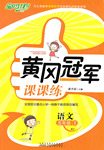题目内容
Over the next four years, Kyle and I became best friends.When we were seniors, we began to think about college.Kyle 1 on Georgetown, and I was going to Duke.I knew that we would always be 2 and that the miles would never be a problem.Kyle was 3 to prepare a speech for graduation.
Graduation day,l saw Kyle.I could see that he was 4 about his speech, So, I patted him on the back and said, “Hey, big guy, you'Il be great!” He looked at me with one of those 5 (the really grateful one) and smiled."Thanks," he said.
As he started his speech, he 6 his throat, and began."Graduation is a time to 7those who helped you 8 it through those tough years.Your parents, your teachers, your siblings, maybe a coach…but 9 , your friends.I am here to tell all of you that being a friend to someone is the best 10 you can give them.I am going to tell you a story.”
Ijust looked at my friend with 11 as he told the story of the first day we met.He had planned to 12 himself over the weekend.He talked of how he had 13 his locker so his Mom wouldnt have to do it later and was carrying his stuff home.He looked hard at me and gave me a little smile. “ 14 , I was saved.My friend saved me from doing the unspeakable.”
I heard the 15 go through the crowd as this handsome, popular boy told us all about his weakest moment.I saw his Mom and Dad 16 me and smiling that same grateful smile.Not until that moment did I 17 .its depth.
Never underestimate(低估)the 18 of your actions.With one small gesture you can change a person's life.For 19 or for worse.Friends are angles who lift us to our feet when our wings have 20 remembering how to fly.
1.A.decided B.called C.took D.agreed
2.A.classmates B.neighbors C.friends D.students
3.A.hoped B.chosen C.forced D.supposed
4.A.sure B.nervous C.eager D.curious
5.A.manners B.impressions C.interests D.looks
6.A.raised B.cleared C.swallowed D.felt
7.A.thank B.understand C.assist D.please
8.A.get B.catch C.manage D.make
9.A.practically B.nearly C.mostly D.seriously
10.A.lesson B.recluest C.gift D.position
11.A.dislike B.disbelief C.disagreement D.disrespect
12.A.kill B.help C.direct D.dismiss
13.A.brokenup B.putout C.set up D.cleanedout
14.A.Pfhankfully B.Unfortunately C.Actually D.Hopelessly
15.A.anger B.disappointment C.gasp D.terror
16.A.pointingto B.lookingat C.appealingto D.aiming at
17.A.reach B.observe C.realize D.measure
18.A.power B.purpose C.reason D.reward
19.A.fairer B.longer C.better D.harder
20.A.time B.energy C.freedom D.trouble
1—5 ACBBD 6—10 BADCC 11—15 BADAC 16—20 BCACD

 黄冈冠军课课练系列答案
黄冈冠军课课练系列答案One of the world's richest men has taken a close interest in one of man’s most basic functions: visiting the toilet.Bill Gates’s charitable organization, the Bill and Melinda Gates Foundation, is looking for inventors to design the loo of the future, which, they hope, would improve sanitation for millions of people around the world.
So, what's wrong with the traditional flush toilet? Firstly, it wastes a huge amount of potential drinking water.Secondly, they are more likely to cause pollution.This is a real problem in many areas of the developing world, where, according to United Nations estimates, unsafe sanitation causes half of all hospitalizations.Younger people are particularly at risk.Illnesses which cause diarrhea are responsible for the deaths of about 1.5 million children a year.Finally, standard lavatories simply aren’t practical in remote areas.
The challenge set by Bill Gates was to come up with a latrine which works without running water, electricity or aseptic tank(化粪池).It also needed to operate for less than 5 cents.28 designs were displayed at the recent Reinvent the Toilet Fair in Seattle, USA.Among them was one which turned human waste into electricity using microwaves, another which converted human waste into charcoal, and yet another which used urine for flushing.
But the winner was a solar-powered design which generated hydrogen gas and electricity.The team from the California Institute of Technology(CIT)picked up a prize of 100,000.ButclearlyBillGatesdoesn′tfeelhe′sflushingmoneydownthetoilet.AftertheSeattleeventhesaid,“We,couldn′tbehappierwiththeresponsewe′vegotten,”Gateshasevenpledged370m more to the future toilet project.They hope to field test more prototypes over the next three years.
【小题1】Why is Bill Gates paying people to invent new toilets?
| A.Because he wants to test people’s sense of creativity. |
| B.Because he wants to improve sanitation for many people. |
| C.Because he thinks the traditional ones are out of fashion. |
| D.Because he can’t design this kind of things himself. |
| A.They waste too much water. |
| B.They might cause diseases. |
| C.They are not always practical. |
| D.They are too complicated to use. |
| A.Loo | B.sanitation | C.diarrhea | D.prototype |
| A.can change human waste into electricity |
| B.can turn human waste into charcoal |
| C.can produce power with solar energy |
| D.can use urine for flushing |
| A.showing off their wealth |
| B.being angry with their work onditions |
| C.wasting money for nothing |
| D.expressing their great determination |